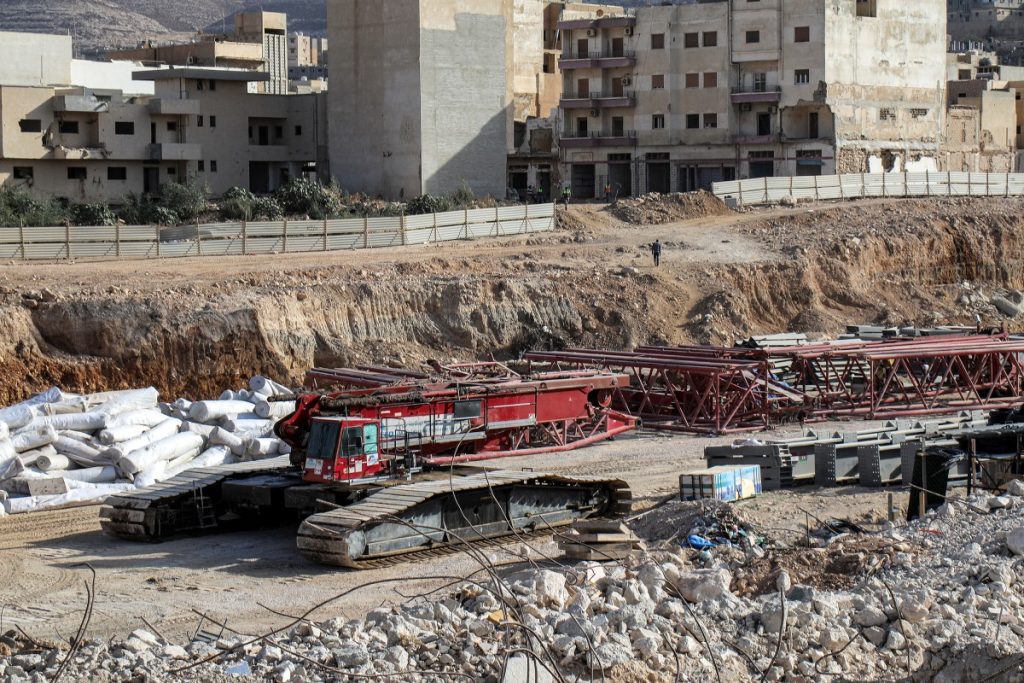A year on from the catastrophic flood that ravaged the eastern Libyan coastal city of Derna, killing thousands and leaving widespread destruction, efforts to rebuild are in progress, but essential services remain insufficient, according to NGOs.
On 10 September 2023, Storm Daniel, which struck with hurricane force, triggered the collapse of two dams inland from Derna, around 1,300 kilometres (800 miles) east of Tripoli, the capital.
The deluge resulted in nearly 4,000 fatalities, left thousands unaccounted for, and displaced over 40,000 people, as reported by the United Nations.
Cranes and construction equipment are hard at work in a once-thriving area now parched and scarred, where people and debris were swept away by flood a year ago.
Formerly home to about 120,000 residents, Derna has become a massive construction zone where homes, schools, roads, and bridges are being rebuilt from scratch.
The city’s distinctive whitewashed buildings, which once stood out against the blue Mediterranean, now contrast with the drab grey of unfinished structures and cinder blocks.
“We expected things to go better,” said Mohamed Azouz. “Work is moving slowly in our street, one of the worst-hit areas.
“We stayed on the street for a month, a month and a half” after the disaster, he added.
The International Rescue Committee, in a joint statement with other groups, including the Norwegian Refugee Council, stated on Tuesday that the flooding “has left critical gaps in essential services” even a year later.
“Numerous families continue to face challenges in obtaining essential necessities, with many displaced people living in precarious conditions,” the statement added.
It mentioned that people face challenges such as access to clean water, inadequate sanitation, and hygiene supply shortages, which put both patients and workers at risk.
It also said that “health risks and shortages of essential medicines persist, particularly for women and children.”
“Psychosocial support, especially for children, needs scaling up as health workers continue to see cases of trauma, grief, and anxiety,” the group added.
Libya is still struggling with the aftermath of armed conflict and political turmoil that ensued after the 2011 NATO-supported revolt that led to the downfall of longtime ruler and dictator Moamer Kadhafi.

